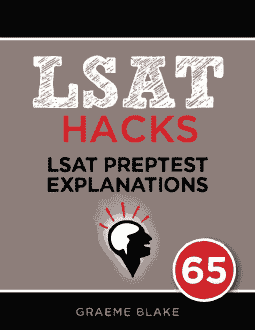QUESTION TEXT: Judge: The case before me involves a plaintiff and…
QUESTION TYPE: Principle
CONCLUSION: The judge will not order that defendants can be questioned without their codefendants or their codefendants’ legal counsel.
REASONING: Two of the defendants have the same lawyer.
ANALYSIS: This is a sort of a necessary assumption question. The judge is assuming that if you question a defendant, their lawyer will be present.
Since the defendants share lawyers, that means the lawyer will be both the defendant’s lawyer and the codefendant’s lawyer.
But what if defendants aren’t allowed to have their lawyer present? Then it doesn’t matter that they share a lawyer.
___________
- This is totally beside the point. The court order wasn’t going to force a lawyer to disclose information.
Negation: A court can issue an order that forces legal counsel to disclose information revealed by a client. - CORRECT. If this is true, then there’s no way to question a defendant without their codefendant’s lawyer being there. Negating this wrecks the argument.
Negation: Defendants do not have the right to have a lawyer present during questioning. - This has nothing to do with lawyers.
Negation: People may not refuse to answer self-incriminating questions during legal proceedings. - The plaintiff wants permission to question the defendant. That doesn’t sound like a right, and in any case the defendant might be able to get the same permission.
Negation: There are occasions when it is correct to grant a plaintiff a right not given to a defendant. - No one mentioned questioning the plaintiff.
Negation: A defendant’s legal counsel does not have the right to question the plaintiff.


For answer choice B, I wonder what if they can have the codefendant Joe with her lawyer, Jane, present first; and then question another codefendant Bob, with the same lawyer Jane present later?
I had to read this one twice to understand what was going on. The situation you presented isn’t possible and here’s why. The plaintiff requested to question each defendant “without their codefendants or their codefendants’ legal counsel being present”. Jane is both Joe and Bob’s counsel. This means that Jane can’t be there when the plaintiff questions Joe because she’s Bob’s counsel; and vice-versa, Jane can’t be there when the plaintiff questions Bob since she’s representing Joe. For both Joe and Bob, Jane is their “codefendant’s legal counsel”. So applying Answer Choice B, which says that defendants have the right to have their legal counsel present when being questioned, would cause the judge to not grant the plaintiff’s request.